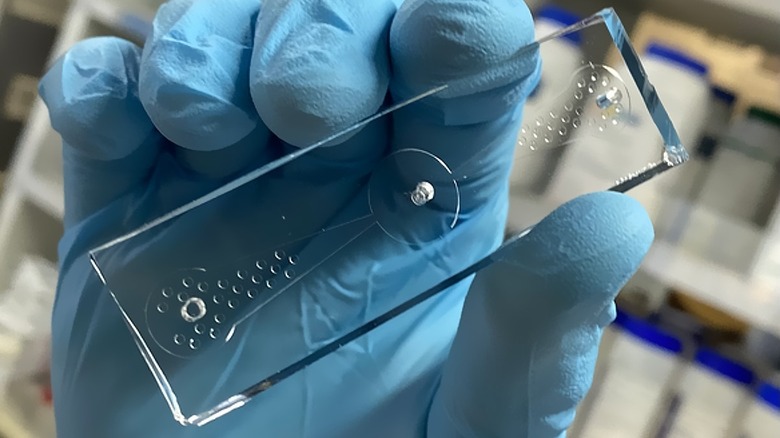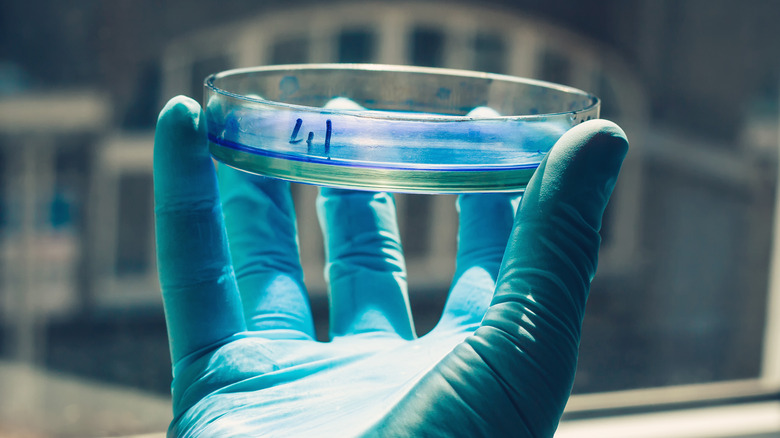Scientists Built A Chip Full Of Tiny Worms To Detect Lung Cancer
You've probably heard stories about dogs that can sniff out cancer in humans, but what about nematodes? These tiny worms, which measure only about a millimeter in length, are attracted to the odor produced by cancer cells, which inspired scientists to create a unique type of lung cancer detection device: a chip literally filled with these small critters.
Though it sounds somewhat gruesome, the concept proved around 70% effective at detecting lung cancer cells, according to a news release detailing the development in EurekAlert, potentially opening the door for earlier detection than is currently possible using biopsies and imaging technologies. Early detection is key to improving a patient's odds of surviving cancer, and, unlike dogs, a chip filled with tiny worms used as a diagnostic device is far more practical to keep in a laboratory.
The scientists call their concept the "worm-on-a-chip" and note they may be able to improve its cancer-detecting accuracy using nematodes that have already "learned" to sniff out cancer cells.
Tiny worms choose cancer cells over healthy ones
The "worm-on-a-chip" is a fairly simple concept: the device, which is made from a silicone elastomer, features a small chamber in the center with two channels leading to two wells, one on each end of the chip. The C. elegans worms are placed in the center chamber, while a drop of healthy lung cells is placed in one well and a drop of lung cancer cells is placed in the other well.
The worms, which are described as having both a strong sense of smell and preference for the odor produced by cancer cells, will move down either channel toward the well of their choice — with more moving toward the drop of cultured lung cancer cells. It only took around an hour for more worms to make their way toward the cancer cell culture, the release notes, and the researchers found their device was ultimately around 70% accurate in detecting the lung cancer sample. Unlike dogs, these worms could be easily grown in a lab and kept around for diagnostic purposes.
The work is just getting started
The scientists say it may be possible to make the test more sensitive and improve its accuracy by using worms already familiar with the smell of cancer cells. Cultured samples are just the start, with the team planning additional tests using other substances from cancer patients, including breath, urine, and saliva samples. As well, the worm-on-chip concept may prove useful for detecting certain other types of cancer, though more testing is necessary.
The research was made possible, in part, by the National Research Foundation of Korea. Shin Sik Choi, Ph.D., and So Jang, the two principal investigators behind the study, will present their work at the American Chemical Society's Spring 2022 event being held next week. In a statement about the work published by EurekAlert, Choi said, "We will collaborate with medical doctors to find out whether our methods can detect lung cancer in patients at an early stage."


